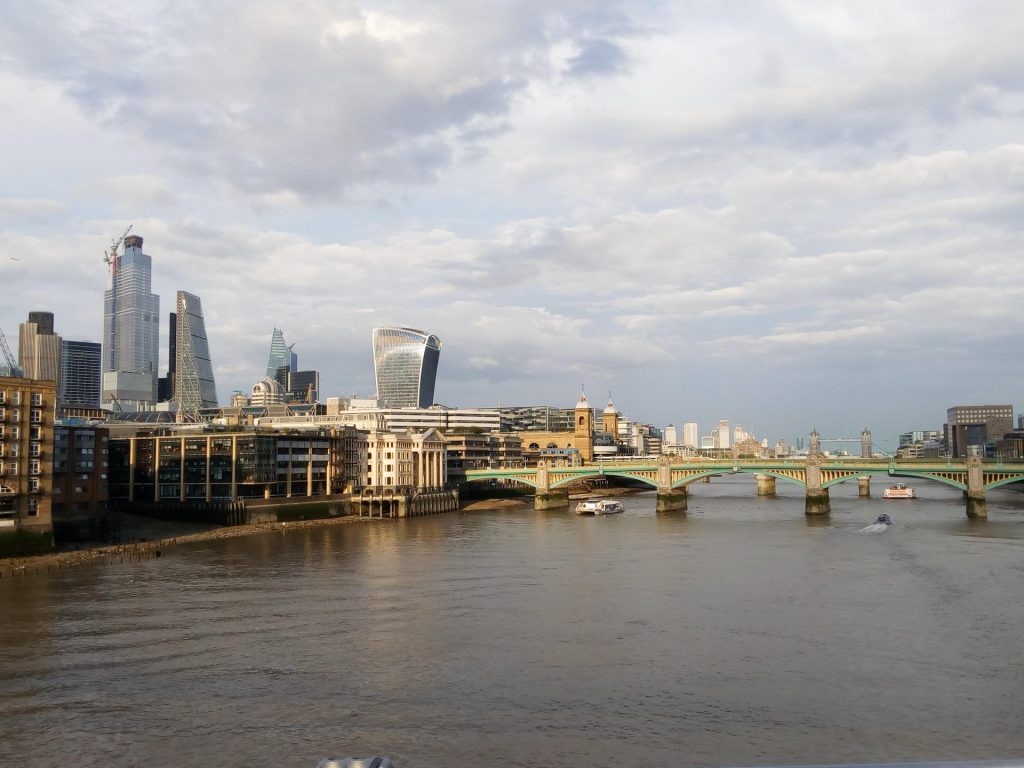With 32.4 million people in the workforce, the UK has the 6th largest economy in the world. Many international students intend to stay in the UK after their studies because the nation boasts an employment rate of over 75%. Over 538,000 international students are enrolled in UK institutions as of 2019–20, according to figures given by HESA.
Study Work Permit in UK
One of the many benefits of studying in the UK is the post-study employment prospects offered to international students pursuing their higher education in the country. So, after successfully completing your studies, in addition to having the freedom to customise your course based on your preferences or the length of the course, you may also gain practical work experience in the UK. The new Graduate Route is one of several ways to help you realise your career goals in the UK, a country that values talent in all of its forms.

All international students who have earned a degree at the undergraduate level or higher from a higher education provider and who, at the time of application, possess a valid Tier 4 visa or a history of compliance are eligible to work or look for work through the Graduate Route. Students can study in the UK for up to two years at the bachelor’s or master’s degree level, and up to three years at the doctoral level with post study visa UK.
UK has always been the centre of intellectual achievement and technological innovation in history. Some of the biggest worldwide giants have their operations headquartered in the UK, whether it be in the fields of finance and banking, information technology, construction, healthcare, fine arts and design, or manufacturing.
Employers all across the world hold degrees earned in the UK universities in high regard and recognise them as authentic credentials. Professional job experience in the UK will increase your prospects and give you a life-changing exposure. Therefore, the Graduate Route gives you the chance to realise your long-held aspirations, whether you have plans to settle in the UK or are eager to get professional work experience before going back to your home country.
Study Work Permit in the UK After Masters
The UK government has revealed that beginning on July 1, 2021, international students may apply for the new Graduate visa, which will allow them to reside and work there for up to two years after graduating.
Students who graduated in the summer of 2021 and later will be eligible to stay in the nation and work there for up to two years with the Graduate visa irrespective of your course.
You don’t need to have a job when you apply for the visa because you don’t have to be sponsored by an employer. Just make sure your degree was earned from an institution of higher learning with a solid reputation. When you apply, you must also be a resident of the UK and have a valid Tier 4 visa. This new method is also incredibly flexible because you don’t have to hold down the same work for the duration of your Graduate visa; as a result, you won’t be penalised if you decide to take a break or switch jobs.
For PhD students, the rules are a bit different. Following the completion of your PhD degree, you will be permitted to work in the UK for up to 3 years. The government wants to boost opportunities for foreign graduates in the UK and enrol 600,000 foreign students in its institutions by 2030. So, this visa is a part of the effort to achieve that. It shows the UK’s dedication to embracing international students and providing amazing possibilities for them to improve their job prospects through an international education.
Student Route Visas
International students who are in possession of Student Route visas have an additional 2 or 4 months following the course end date indicated on their CAS letter. When the course is over, the student can begin working full-time until their visa expires. If you plan to remain in the UK after completing your studies, you might need to apply for a different type of visa. International students who want to remain and work in the UK after completing their education have a number of choices. You must apply for the subsequent visa on or before the present visa expires in order to preserve your immigration status.
Following are the most popular visa paths graduates can take to work in the UK:
- Graduate Route Visa
- Professional route (formerly Tier 2)
- Start-up visa
- Visa for Sabbatical Officers in the Students’ Union
- Youth Mobility Scheme (T5)
Post Study Work Visa UK After Master’s
A two-year non-sponsored visa called the Graduate Route (GR) enables eligible students to remain and work in the UK. Employer sponsorship is not necessary (as some points-based system visas require). There is no minimum wage and no restriction on the type of work you can do. It has no bearing on your visa if you take your time hunting for work or if you change jobs.
If your wife, spouse, and any minor children already have permission to stay in the UK as your dependents, they may extend that permission to join you on this visa. However, adding new dependents is not allowed via this route. The Graduate Route’s two-year period cannot be extended. At the end of the two years, you will either need to leave the UK or switch to a new visa, like a Tier 2 Visa, which permits it in the UK.
Doctoral students:
The Graduate path has replaced the Doctorate Extension Scheme for doctoral students (DES). PhD holders were granted a 12-month extension of their student visa by DES. Doctoral graduates now have three years of post-study entitlement instead of the two they previously had under the DES, thanks to the establishment of the Graduate path, which incorporates DES.
EU students:
The Graduate Route is open to students from the EU (and EEA) and Switzerland who do not have permanent or pre-settled status in the UK. If you have settled or pre-settled status, you won’t need a post-study work visa to remain in the UK.
For the Graduate Route, the Home Office has established eligibility requirements. Read the eligibility requirements carefully to see whether you are qualified to apply for this visa.
You must fulfil each requirement listed below in order to be eligible:
- Finish your coursework on a student visa
- Have the permission to remain in UK by the time you apply
- To apply, you must be in the UK by a certain date:
- In order to apply for the Graduate Route, you typically had to have completed your undergraduate studies in the UK.
You will be entitled to apply if you arrive in the UK by September 27, 2021, to finish your postgraduate course if you began it through distance learning in 2021 and have never before studied there. If you started a postgraduate programme in 2020 or 2021, you still have permission to enrol in that course as a student, and you have already visited the UK while you have that permission, you are entitled to apply as long as you are in the UK before the course’s conclusion date.
For the purposes of this criteria, students who would often only be sponsored to study in the UK through the student route for the last year of a longer course, such as those on articulated degree programs, will be regarded as being on a course of 12 months or less.
You won’t be disqualified from enrolment if your course is longer than 12 months due to any distance learning that occurred in the UK or abroad between 24 January 2020 and 27 September 2021.
If your course is longer than one year and ends in 2022 or later, you will not be penalised for any time spent studying remotely during the 2020–21 academic year (in other words, you can study remotely throughout the entire 2020–21 academic year if you will also be studying remotely during the academic year 2021/22).
Visa Type 2
The main immigration route for skilled workers from outside the European Economic Area (EEA) or Switzerland to enter the UK and work for a recognised, licensed employer is through a Tier 2 visa. The following four subcategories make up Tier 2 under the UK’s points-based system:
- Tier 2 (General): This will enable foreign skilled employees to accept a job offer when it cannot be filled by a UK resident who is fully qualified or skilled.
- Tier 2 (Intra-Company Transfer): Under this category, current employees of a foreign company or organisation may move to a branch office in the UK.
- Tier 2 (Sportsperson): Under this category, elite athletes and coaches with a strong international reputation may choose to reside in the UK.
- Tier 2 (Religion) Religious workers will be able to work in the UK’s faith communities under Tier 2 Minister of Religion.
We will be talking about visa type 2 general because it gets most of the requests being that it is general and suitable everybody.
Tier 2 (General)
The Tier 2 (General) visa is for people who have a work offer in the UK and are moving there to meet a labor shortage that cannot be met by an individual already residing there.
The Tier 2 (General) visa category also allows for the wives, partners, and any dependant children to move to the UK at the same time as the primary Tier 2 applicant because it can result in Indefinite Leave to Remain.
Given the nature of the worldwide battle for talent and skilled labor, it is crucial to assist skilled migrants seeking employment in the UK in obtaining the necessary immigration status.
This enables skilled non-EEA migrant workers to accept an offer of a job that cannot be filled by a suitably qualified or skilled settled worker. This includes workers coming to the UK to fill shortage occupations, or jobs where there aren’t enough workers on the domestic labor market to meet demand.
In order to be granted a Tier 2 (General) visa, the applicant must:
- Have a verified job offer from an authorised UK employer (sponsor).
- Have a current sponsorship certificate
- Obtain a score of 70 in the points-based system.
- Possess a legitimate job offer that won’t replace a settled employee who is sufficiently qualified or skilled
- Receive a job offer that satisfies the necessary skill and pay requirements
- Satisfy the linguistic requirement for English
- Observe the maintenance obligation.
Skill and Salary Requirements for Tier 2
The necessary Tier 2 skill and salary levels must also be met by any employment provided to a non-EEA migrant worker, albeit the needed level of expertise and salary may vary based on the employer’s requirements.
Typically, level 6 or higher on the Regulated Qualifications Framework will be required for the position (RQF). For a position in the creative sector or one that is on the list of shortage occupations, the required skill level is RQF level 4.
Typically, new employees must make at least £20,800 year, experienced employees must make at least £30,000 annually, or the suitable rate for the job in issue, whichever is higher.
Financial Requirements
The Home Office must be convinced that the applicant for a Tier 2 visa will be able to sustain themselves once they arrive in the UK. This can be accomplished by providing evidence of personal funds or a maintenance guarantee from you, their UK-licensed sponsor, stating that you will pay for their first month’s expenses.
If the provision of maintenance is not acknowledged on the certificate of sponsorship, the applicant must demonstrate that they have £945 in their bank account for at least 90 days prior to the application date.
English Proficiency
The candidate for a Tier 2 visa must prove their proficiency in the English language to the Home Office. This can be proven by passing a recognized English language test or by holding a degree that was taught in English and is accepted as being at least as good as a bachelor’s degree from the UK. Citizens of nations with a majority of English-speaking people, such as the USA, Canada, Australia, or New Zealand, are excused from having to demonstrate their English proficiency.
criteria for a sponsorship certificate.
As the employer, you must give the migrant worker a legitimate certificate of sponsorship after you have offered them a position with the necessary skill level and pay. If you are a UK-licensed sponsor, you must be in order to accomplish this. You must first get Home Office clearance if you do not already have a Tier 2 license. Only migrant workers who are suitably qualified or registered to perform the job listed may be given certificates of sponsorship, according to your responsibilities and obligations as a Tier 2 sponsor. Additionally, the sponsorship certificate must attest that the position requires the necessary degree of education and pay.
Major UK Recruiters
The best places to find jobs in the UK after earning a master’s degree, according to Glassdoor, one of the leading online job search portals, are:
- Salesforce
- Microsoft
- Apple
- SAP
- Meta
- KPMG
- Deloitte
Best Courses for Jobs in the UK
Engineering
The following are the top categories under engineering
- Civil Engineering
- Automotive Engineering
The Average Employability Rate is 62- 75%
As you can see, even if there is a skill shortage in engineering, this does not guarantee that every engineering graduate will find employment. When looking for a career, you must be skilled.
You might attempt breaking into the following sectors, which are seeing good growth.
Nuclear energy: The government hopes that in the future nuclear power will offer dependable, low-carbon, and reasonably priced electricity. The workforce must grow by 7,000 to 8,000 people annually in order to reach this goal, with many of these people replacing retirees. Big data is expected to add £241 billion to the UK economy by 2020, supporting the creation of 157,000 new employment.
Engineers in the fields of mechanical, electrical, electronic, chemical, and software are in high demand because there are many industries where they can work in design, production, and maintenance.

- Healthcare
The UK’s world-class healthcare system is well-known across the world. Healthcare experts are in high demand throughout the UK, and you may anticipate earning well in exchange for your services. The amount of commitment needed is significant due to the high level of responsibility and program intensity associated with this career.
Degrees
- MPH
- MSc
- Nursing
- Medicine
Average Salary
£167,000/ year
- Statistics, Actuarial Science, Economics, and Mathematics
In the UK, there has been a severe shortage of economists, statisticians, and actuaries for quite some time. Since mathematicians are in high demand across a wide range of businesses, graduate job opportunities abound in that sector. Within six months of finishing their courses, 86.5% of math, statistics, economics, and actuarial science graduates land a job. Compared to other graduates, post study opportunities abound for math graduates. Many choose careers in finance, accounting, banking, or analysis. Studying any of these courses may also be useful for those seeking employment in the technology sector.
Frequently Asked Questions
Can I get a post-study work visa in the UK?
International students are permitted to remain in the UK for up to two years after completing their graduate studies thanks to the UK post-study employment visa. Students who begin their studies in the UK after September 2020 are eligible for 2-year post study work visa UK.
What is post study work visa UK eligibility?
Anyone who earns a UK degree with a valid visa (Tier 4 or Student Route) on or after July 1, 2021, is eligible for the Graduate Route. There are no subject- or nationality-related restrictions on eligibility.
What Is Post-study work Visa in the UK?
International students have the option to live, study, and begin employment in any selected post or professional path once they complete their studies thanks to the Post Study Work Visa (PSWV), a temporary visa.
What Do I need To Get A UK Work permit?
- You must possess a degree, whether it be an undergraduate, graduate, or doctoral degree, from an accredited institution of higher education.
- You must be self-sufficient and not in need of any financial assistance.
- After completing your program, the visa application must be made within a year.
- In the next 12 months, you should look for job opportunities.
- Those who have not finished their degree in English will need to take the IELTS, and must obtain a score in the range of 6.5 across all four sections of the test.
- Those who have not finished their degree in English will need to take the IELTS, and must obtain a score in the range of 6.5 across all four sections of the test.
- Lastly, a source of source of sufficient funding specified by the UK government.
